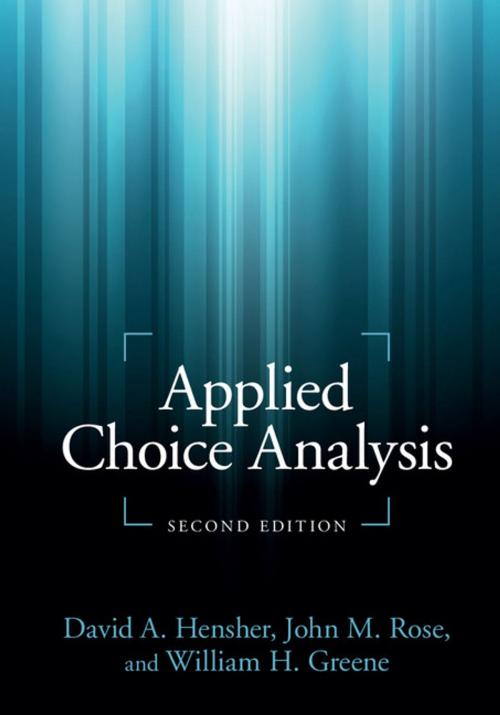| Author: | David A. Hensher, John M. Rose, William H. Greene | ISBN: | 9781316289723 |
| Publisher: | Cambridge University Press | Publication: | June 11, 2015 |
| Imprint: | Cambridge University Press | Language: | English |
| Author: | David A. Hensher, John M. Rose, William H. Greene |
| ISBN: | 9781316289723 |
| Publisher: | Cambridge University Press |
| Publication: | June 11, 2015 |
| Imprint: | Cambridge University Press |
| Language: | English |
The second edition of this popular book brings students fully up to date with the latest methods and techniques in choice analysis. Comprehensive yet accessible, it offers a unique introduction to anyone interested in understanding how to model and forecast the range of choices made by individuals and groups. In addition to a complete rewrite of several chapters, new topics covered include ordered choice, scaled MNL, generalized mixed logit, latent class models, group decision making, heuristics and attribute processing strategies, expected utility theory, and prospect theoretic applications. Many additional case studies are used to illustrate the applications of choice analysis with extensive command syntax provided for all Nlogit applications and datasets available online. With its unique blend of theory, estimation, and application, this book has broad appeal to all those interested in choice modeling methods and will be a valuable resource for students as well as researchers, professionals, and consultants.
The second edition of this popular book brings students fully up to date with the latest methods and techniques in choice analysis. Comprehensive yet accessible, it offers a unique introduction to anyone interested in understanding how to model and forecast the range of choices made by individuals and groups. In addition to a complete rewrite of several chapters, new topics covered include ordered choice, scaled MNL, generalized mixed logit, latent class models, group decision making, heuristics and attribute processing strategies, expected utility theory, and prospect theoretic applications. Many additional case studies are used to illustrate the applications of choice analysis with extensive command syntax provided for all Nlogit applications and datasets available online. With its unique blend of theory, estimation, and application, this book has broad appeal to all those interested in choice modeling methods and will be a valuable resource for students as well as researchers, professionals, and consultants.















